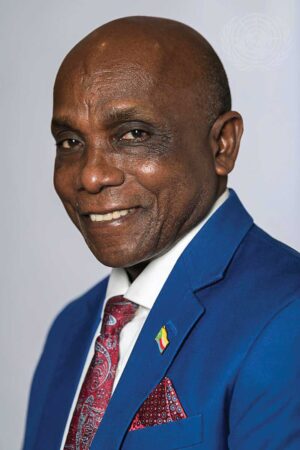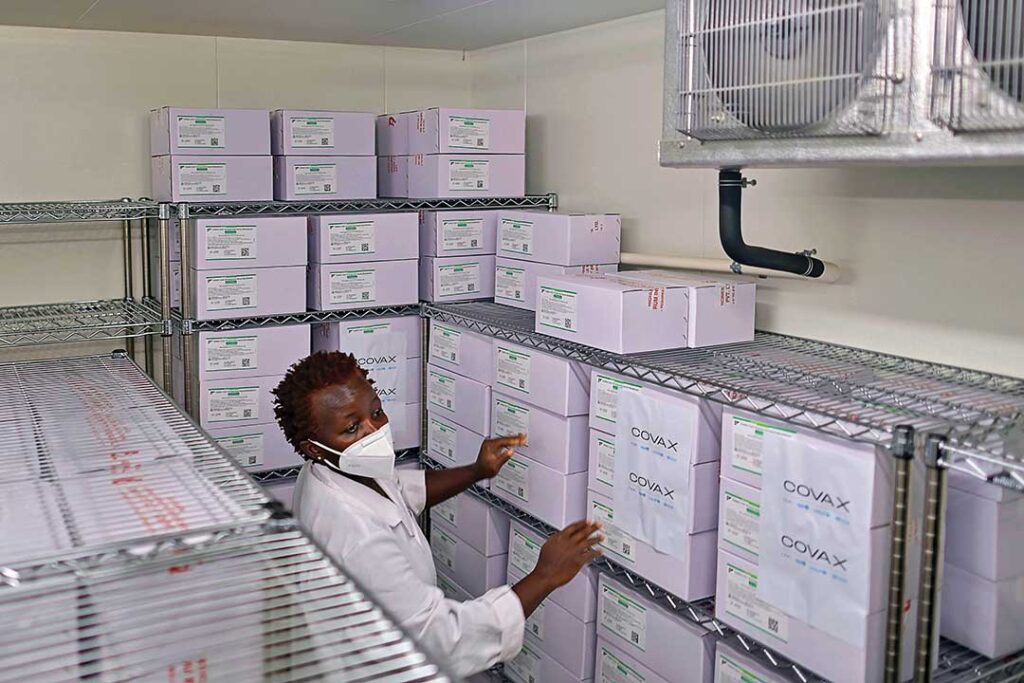 Issimail Chanfi, permanent representative of Comoros to the United Nations, spoke during the Africa Dialogue Series 2021 on May 28, 2021. The U.N.’s Office of the Special Adviser on Africa sponsored the event. The theme of the series was “Cultural identity and ownership: reshaping mindsets.” Chanfi’s comments have been edited to fit this format.
Issimail Chanfi, permanent representative of Comoros to the United Nations, spoke during the Africa Dialogue Series 2021 on May 28, 2021. The U.N.’s Office of the Special Adviser on Africa sponsored the event. The theme of the series was “Cultural identity and ownership: reshaping mindsets.” Chanfi’s comments have been edited to fit this format.
During this month of the Africa Dialogue Series we have witnessed that a new narrative is indeed possible if only we give voice to African experts.
We have shown the world that Africa is a continent full of innovators who are ready to face emerging challenges from an African perspective and take into account Africa’s needs and realities.
We have realized that culture and identity are powerful tools that can enable African countries to take ownership of their development. But for that purpose, as the theme of the Africa Dialogue Series suggests, we need to reshape mindsets; we need to change the perspective.
Africa should not continue to be addressed as a continent in need of “aid.” Africa’s past and present are full of success stories. Great civilizations were born in the continent without the help of external players. Ambitious projects are being promoted in our day and age, such as the African Continental Free Trade Area, meant to be the largest and most important market in the world.
African countries are ready to lead a new approach to development. To implement this new approach, African countries need partners who are committed, partners who respect Africa’s role as a global player, partners who ensure that past inequalities are not used to maintain a global imbalance.
2021 is a year of hope and opportunity for Africa and for the world. As it has been noted during these three days of discussions, the disruptions triggered by COVID-19 provide an opportunity for all of us to build forward and to build better. COVID-19 has laid down clearly what the priorities should be.
It has shown the importance of human capital. Health and education cannot continue to be perceived as “social rights” only. They are fundamental components of development. Investing in health and education, investing in human capital is ensuring that our societies will be resilient and able to overcome future pandemics.
COVID-19 has also proved how necessary it is to live in communion with nature. Economic growth needs to be approached from a perspective of environmental sustainability. Initiatives such as the blue economy promoted by African countries and the African Union — based on the sustainable use of ocean resources for economic growth, improved livelihoods and ecosystem health — are the future.
COVID-19 has also demonstrated that industrialization is a priority and a responsibility of African countries and their international partners.
Let’s make the crisis an opportunity. Let’s transform the risk of a vaccine divide into an opportunity to create a stronger Africa that contributes to global prosperity. Instead of trying to solve the shortage of vaccines worldwide in the traditional way, we need to seize the opportunity to increase Africa’s capacity to produce its own vaccines and, consequently, strengthen the continent’s resilience and its path toward development. We have the tools. We just need political will and the commitment of our partners to make this plan a reality.

